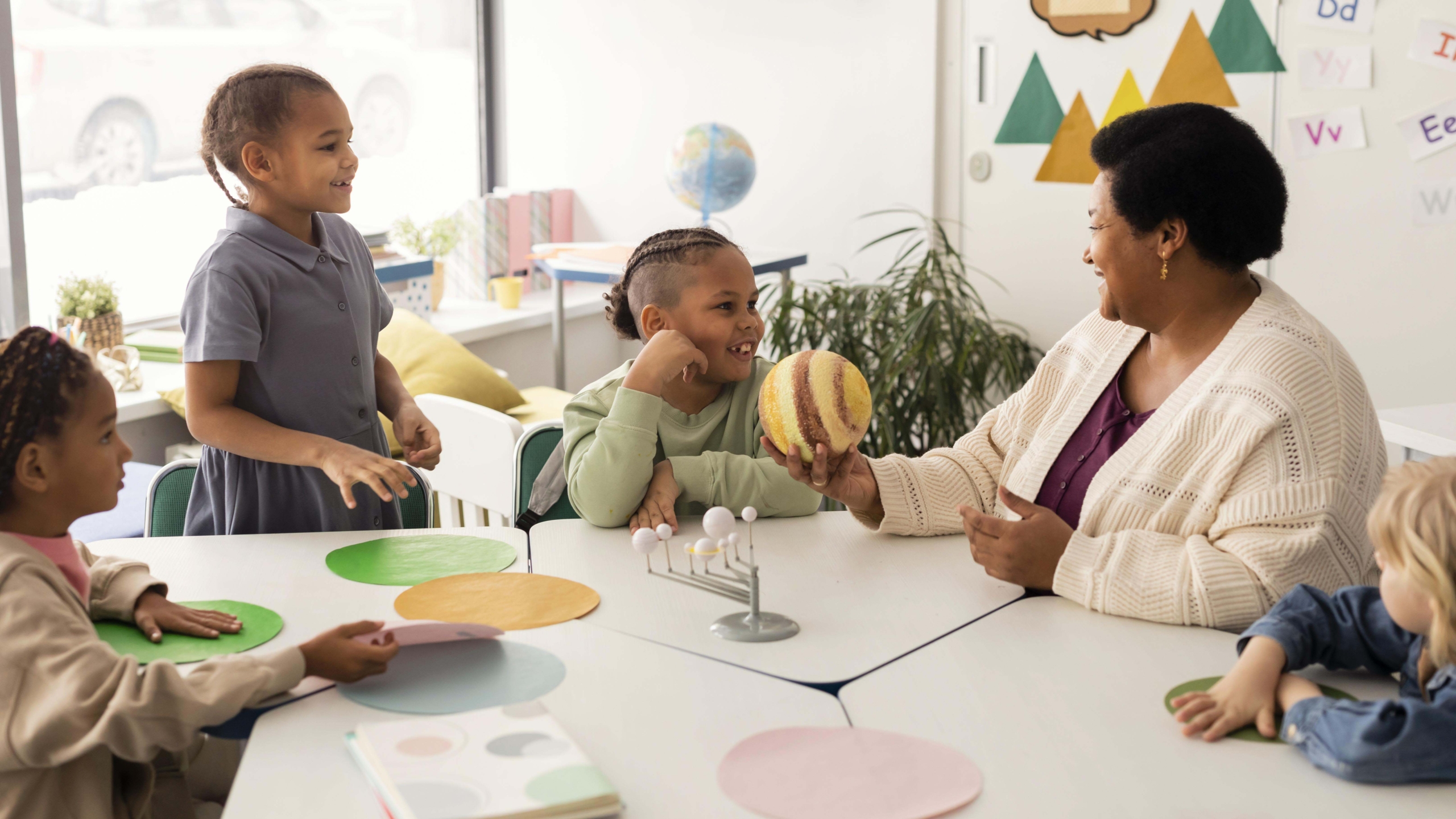On October 24, 2024, I had the opportunity to participate in a transformative DC Public Schools (DCPS) Learning Tour, hosted by DC Public Education Fund, DCPS, and Porticus. The tour focused on understanding how the DCPS Becoming initiative’s student support fosters a stronger sense of belonging and safety in schools, and how we can contribute to the next phase of this transformational work. This initiative is redefining the way educators and school communities address student needs by integrating whole-child practices across elementary, middle, and high school settings.
DCPS Becoming is a mental health initiative that aims to better equip districts to provide whole-child support to students experiencing trauma and mental health challenges. The initiative equips educators with tools to make students feel challenged, loved, and prepared for both academic success and life beyond school. During the tour, it became clear how this initiative is reshaping the way we think about student engagement, belonging, and safety.
Our first stop on the tour was at Thomson Elementary, a school that serves 253 students in grades Pre-K through 3rd grade. The student population at Thomson is notably diverse with 46% Hispanic/Latino, 35% Black, 9% White, and 6% Asian students. Additionally, 48% of students are English Language Learners (ELL), and 45% are identified as “at risk.”
Thomson is a prime example of how the DCPS Becoming initiative is driving change at the elementary level. Led by Principal Carmen Shepherd, Thomson became the first DCPS elementary school to offer the International Baccalaureate Primary Years Program. A key highlight of the tour was observing morning meetings focused on mindfulness. By starting the day with mindfulness, goal setting, and mantras, students are given tools they can use not just in the classroom but also during stressful moments outside of school. This structure helps build resilience and gives students a sense of control, preparing them to better handle challenges as they arise.
Another critical focus of the school’s work is student relationship structures, which foster strong bonds between staff and students. I was particularly impressed by the emphasis on supporting Black female students, who have historically reported a lower sense of belonging compared to their peers. Through these efforts, the school saw a significant 9-point improvement in the sense of safety and inclusion for Black female students from Spring 2023 to Spring 2024.
Our second visit was to Columbia Heights Educational Campus (CHEC), which serves nearly 1,500 students in grades 6-12. Like Thomson, CHEC has a highly diverse student body, with 68% Hispanic/Latino and 29% Black students. Additionally, 41% of students are English Language Learners, and 55% are considered “at-risk.”
Led by Principal Maria Tukeva, CHEC has cultivated a globally-minded bilingual campus with a strong sense of community. During our visit, we learned how CHEC uses structured student relationship-building routines to strengthen student-teacher relationships. Their innovative use of the Panorama check-in tool has been instrumental in helping students feel more connected and engaged, inspiring DCPS to use this tool across all schools.
Through the classroom observations, student panels, and discussions with school leaders, it became clear that holistic support is essential to creating safer, more inclusive school environments. Strong teacher-student relationships and consistent routines help students feel supported academically and emotionally. By integrating mental health into the classroom, students are encouraged to express their feelings, rather than focusing solely on academic understanding. The impact is evident — students experience a stronger sense of belonging and contribute to a more positive school culture.
As I reflect on the DCPS Becoming Initiative, I’m inspired by the potential this model has to transform schools. Hearing students share their appreciation for teachers who build and maintain strong relationships through consistent care was especially moving. This initiative is about more than academic achievement; it’s about creating an environment where students can thrive as whole individuals. I look forward to supporting the next steps in this transformative work and continuing to advocate for holistic approaches to education.
Header photo from Freepik
About the author

Courtney Dennis, BS
Community Education Specialist within the Child Health Advocacy Institute at Children's National Hospital



